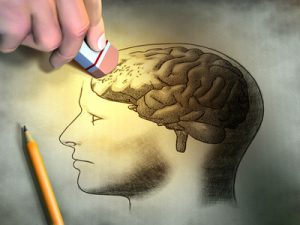Report calls for earlier diagnosis of dementia and faster ‘co-ordinated care’
Obtaining a diagnosis of dementia can bring a whole range of benefits to patients and their carers, according to a new report.
The ‘Benefits of Timely Dementia Diagnosis’, due to be published at the annual conference of the Dementia Action Alliance, found diagnosis can reduce anxiety, help people plan for the future, allow them to access local support and give them the tools they need to explain their condition to friends and family.
“In the past the value of dementia diagnosis has too often been measured in terms of what medication a GP can give a patient,†said Simon Kitchen, executive lead of the Dementia Action Alliance (DAA).
“Realising that diagnosis can bring many emotional benefits and put people back in control of their lives changes the terms of the argument and may help to push up timely diagnosis rates, which are still unacceptably low.â€
The issue of whether it is beneficial for someone with dementia to have an early diagnosis, has long been a subject of debate, with some saying not to diagnose protects the person with dementia from ‘harm or unnecessary stress’.
Other opponents to early diagnosis say if little can be done in terms of effective medical treatment, there’s little point in diagnosing dementia.
However this report shows there are a whole raft of benefits to diagnosis which ‘directly counters’ these arguments.
The report reveals that ‘access to medication stands out as the single most important benefit’ however it ‘appears less important than the ability to plan, to access services and to adjust emotionally and psychologically’.
‘Benefits of Timely Dementia Diagnosis’, which was produced by charity Agetrust for the DAA and Department of Health, also notes that these benefits depend on co-ordinated care and support for people with dementia following a diagnosis. Many GPs say they are reluctant to refer people for the specialist tests that can confirm a diagnosis of dementia, if there aren’t sufficient high-quality services available in the area. The report shows the DAA working to coordinate the support that professionals, patients and carers all require to make the most of a diagnosis.
Agetrust chief executive Paul Springer said: “Support for people with dementia needs to be better co-ordinated and made faster and easier for people to find and use. GPs, nurses, pharmacies and everyone who works in primary care are ready to make a huge difference for people with dementia – we just need to join up all the support tools and give them the small funding they need to protect us from overwhelming costs in terms of money and suffering.â€
The DAA is now working with GPs and community pharmacies to implement some of the recommendations in the report. “We know a lot about how we can reduce people’s risk of getting many types of dementia, we know what the keys are to increasing rates of diagnosis in time to ensure people get as much help as possible, and we know the kind of help that people need post-diagnosis. The key is to move from talking about it to acting – that’s what the Dementia Action Alliance was set up to do,†said the DAA’s Mr Kitchen.
Dr Charles Alessi, chairman of the National Association of Primary Care, who is launching the report at the conference hopes it will “help us all co-operate on improving how we deal with both diagnosis and also, importantly, with prevention. There is real value in us thinking of dementia as a condition where our behaviour can have a tremendous influence on outcome. We can indeed delay the onset of cognitive impairment by managing risk factors, and at the same time prevent or delay many other conditions – reducing the burden on the health and other services and adding productive life to the years we live.â€
Professor Graham Stokes, director of dementia care at Bupa and a co-chair of Dementia Action Alliance said: “This report helps to inform the debate around dementia diagnosis rates and how more must be done to ensure people living with dementia receive the right levels of treatment, care and support.
“Typically, people receive a diagnosis at a relatively late stage when treatment to slow the disease progression no longer works. Early diagnosis is necessary to enable people to access treatment that can help them. An early diagnosis will also support people living with dementia and their families to learn more about the condition and empower them to make informed decisions about their future care needs.â€
In the report, the National Council for Palliative Care stated there was a ‘failure to diagnose 60 per cent of people living with the condition [of dementia]’.
